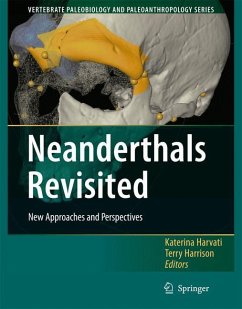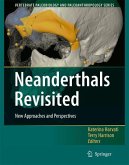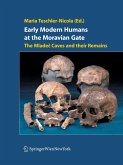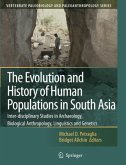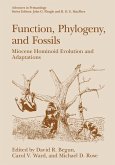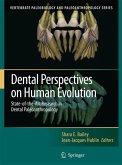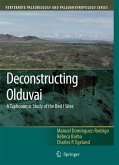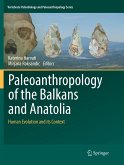Recent years have witnessed exciting and important scientific breakthroughs in the study of Neanderthals and their place in human evolution which have transformed our appreciation of this group's paleobiology and evolution. This volume presents cutting-edge research by leading scientists re-examining the major debates in Neanderthal research with the use of innovative state-of-the art methods and exciting new theoretical approaches.
Topics addressed include the re-evaluation of Neanderthal anatomy, inferred adaptations and habitual activities, developmental patterns, phylogenetic relationships, and the Neanderthal extinction; new methods include computer tomography, 3D geometric morphometrics, ancient DNA and bioenergetics. The diverse contributions offer fresh insights and advances in Neanderthal and modern human origins research.
This is a Volume in The Max-Planck-Institute Subseries in Human Evolution coordinated by Jean-Jacques Hublin, Max-Planck-Institute for Evolutionary Anthropology, Department of Human Evolution, Leipzig, Germany
Hinweis: Dieser Artikel kann nur an eine deutsche Lieferadresse ausgeliefert werden.
Topics addressed include the re-evaluation of Neanderthal anatomy, inferred adaptations and habitual activities, developmental patterns, phylogenetic relationships, and the Neanderthal extinction; new methods include computer tomography, 3D geometric morphometrics, ancient DNA and bioenergetics. The diverse contributions offer fresh insights and advances in Neanderthal and modern human origins research.
This is a Volume in The Max-Planck-Institute Subseries in Human Evolution coordinated by Jean-Jacques Hublin, Max-Planck-Institute for Evolutionary Anthropology, Department of Human Evolution, Leipzig, Germany
Hinweis: Dieser Artikel kann nur an eine deutsche Lieferadresse ausgeliefert werden.
From the reviews:
"Neanderthals Revisited deals exclusively with the biological issues ... . Readers will gain an appreciation of the diversity of scientific perspectives on the Neanderthals ... . The result is an excellent and extremely useful compendium of approaches and perspectives, including some very novel ones. ... I consider it a must read for anyone interested in any aspect of hominin evolution and believe it will stand for many years as the fundamental reference for the role of the Neandertals in our evolutionary history." Fred H. Smith, Journal of Mammalian Evolution, 2008
"At the beginning of 2005, Katerina Harvati and Terry Harrison hosted a conference entitled 'Neanderthals Revisited: New Approaches and Perspectives,' which was supported by the Center for the Study of Human Origins ... . The papers run the gamut of research themes and styles, ranging from a study of the Neanderthal hand to one that claims to have found evidence of selection acting on mtDNA. ... a rich source of information and inspiration for students, researchers, and teachers." Bernard Wood, American Journal of Physical Anthropology, 2008
"This volume presents a stimulating survey of current perspectives on Neanderthal issues, ranging from species concepts and systematics, to dental morphology and developmental studies, to molecular approaches and morphological analyses. ... To sum up, this volume is a very worthwhile addition to one's bookshelf, presenting a diverse collection of current and stimulating research papers." Kevin L. Kuykendall, PaleoAnthropology, 2009
"Neanderthals Revisited deals exclusively with the biological issues ... . Readers will gain an appreciation of the diversity of scientific perspectives on the Neanderthals ... . The result is an excellent and extremely useful compendium of approaches and perspectives, including some very novel ones. ... I consider it a must read for anyone interested in any aspect of hominin evolution and believe it will stand for many years as the fundamental reference for the role of the Neandertals in our evolutionary history." Fred H. Smith, Journal of Mammalian Evolution, 2008
"At the beginning of 2005, Katerina Harvati and Terry Harrison hosted a conference entitled 'Neanderthals Revisited: New Approaches and Perspectives,' which was supported by the Center for the Study of Human Origins ... . The papers run the gamut of research themes and styles, ranging from a study of the Neanderthal hand to one that claims to have found evidence of selection acting on mtDNA. ... a rich source of information and inspiration for students, researchers, and teachers." Bernard Wood, American Journal of Physical Anthropology, 2008
"This volume presents a stimulating survey of current perspectives on Neanderthal issues, ranging from species concepts and systematics, to dental morphology and developmental studies, to molecular approaches and morphological analyses. ... To sum up, this volume is a very worthwhile addition to one's bookshelf, presenting a diverse collection of current and stimulating research papers." Kevin L. Kuykendall, PaleoAnthropology, 2009
